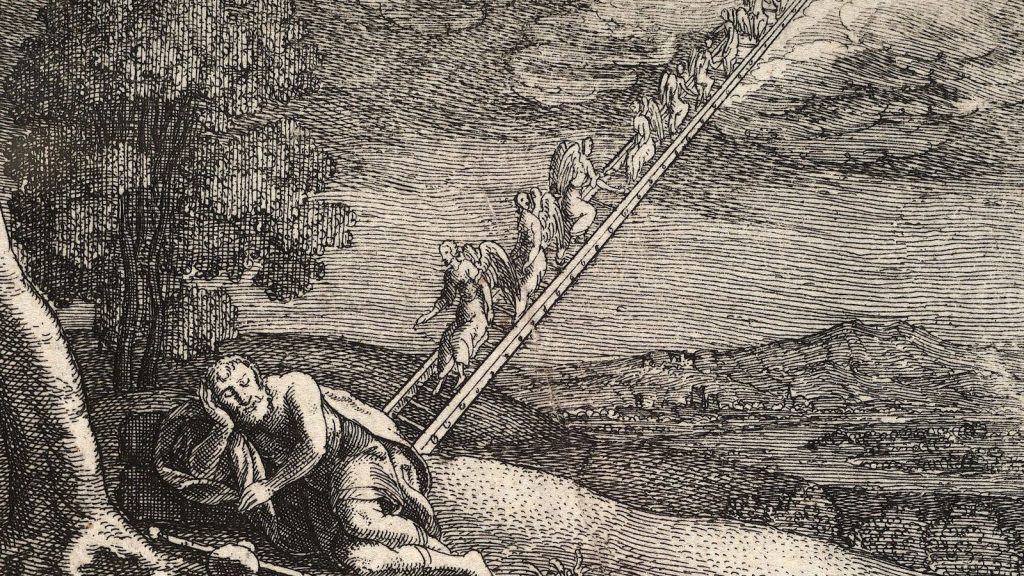Bethel: Named by a Twin on the Run
In the Book of Genesis, Jacob, the grandson of Abraham, is the character who renames a small hamlet originally called Luz, after having a singular dream there.
Jacob was the favorite of his mother, Rebecca, while Isaac his father was closer to Jacob’s fraternal twin, Esau. In Genesis 27, Rebecca overhears Isaac tell Esau: “Bring me venison and prepare a savory food, that I may eat, and bless you before the LORD before my death.” As it happens, food had already played an important part in the story, when Jacob had bought the “right of the firstborn” from a ravenous Esau… all in exchange for a dish of lentils.
This time, Rebecca devised a complicated scheme, and the result is that frail and blind Isaac blessed his son Jacob, while intending to bless his son Esau. When Esau discovered his twin brother’s deception he vowed to kill Jacob. Learning this, Rebecca suggested that her favorite son should stay far away at her brother Laban’s for a while, to find a wife among her own people. Isaac agreed and blessed Jacob again, then he commanded him: “Do not marry a Canaanite woman. Go at once to Paddan Aram, to the house of your mother’s father Bethuel. Take a wife for yourself there, from among the daughters of Laban, your mother’s brother.” (In contrast, the rougher Esau would eventually marry local Hittite women, Judith and Basemath, to his parents’ aggravation.)
While traveling to Paddan Aram where his uncle Laban lived, Jacob stopped overnight in Luz. Genesis 28 tells us: “When he reached a certain place, he stopped for the night because the sun had set. Taking one of the stones there, he put it under his head and lay down to sleep. He had a dream in which he saw a ladder resting on the earth with its top reaching to heaven, and the angels of God were ascending and descending on it.” God talked to Jacob in his dream: “I will give you and your descendants the land on which you are lying. Your descendants will be like the dust of the earth, and you will spread out to the west and to the east, to the north and to the south. All peoples on earth will be blessed through you and your offspring.”
When he woke up, Jacob “took the stone he had placed under his head and set it up as a pillar and poured oil on top of it. He called that place Bethel, though the city used to be called Luz.” Then Jacob made a vow, saying: “If God will be with me and will watch over me on this journey I am taking and will give me food to eat and clothes to wear so that I return safely to my father’s household, then the Lord will be my God and this stone that I have set up as a pillar will be God’s house, and of all that you give me I will give you a tenth.” Many years later, Jacob returned to Bethel, built an altar to God there, and called the place El-Bethel, which means “God of Bethel.” Bethel remained one of the main worship centers of Israel. The ark of the covenant was kept at Bethel for a time, and the people often went there to seek God during times of trouble.
For the rest of the story, how Uncle Laban took advantage of Jacob for 14 years, how Jacob married two sisters, and how the twins were eventually reunited, you will need to dive into the book of Genesis. But now you know where the Ugaritic word Bethel – meaning house of God – comes from.

